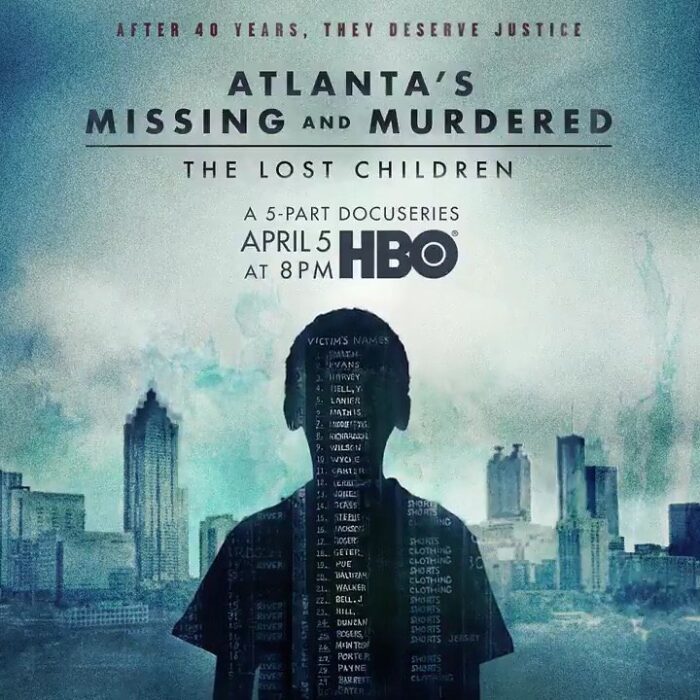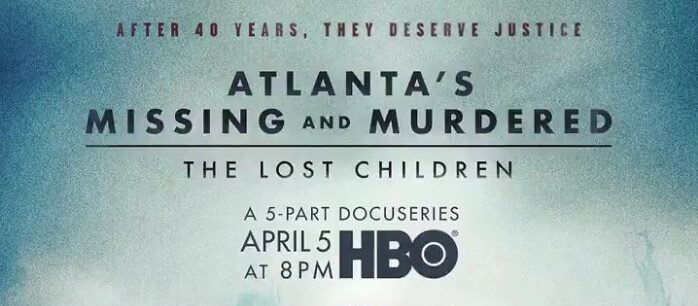By Wilson Morales,
Having debut on April 5, ATLANTA’S MISSING AND MURDERED: THE LOST CHILDREN is a five-part documentary series offering an unprecedented look at the abduction and murder of at least 30 African American children and young adults in Atlanta between 1979 and 1981. Forty years later, with the official re-opening of the case by Atlanta’s Mayor Keisha Lance Bottoms, the series tells the inside story of this shocking tragedy, shedding new light on the horrific killings through interviews with those closest to the children and the investigation, as well as exclusive archival material. The series tracksthe story from the initial disappearance and discovery of two murdered teenage boys to the fear that progressively gripped the city, ultimately building to the indictment and prosecution of 23-year-old Wayne Williams, revealing the rush to officially shut down the case and the continuing deluge of questions that remain unanswered.

The series will also be available on HBO On Demand, HBO NOW, HBO GO and partners’ streaming platforms.
ATLANTA’S MISSING AND MURDERED: THE LOST CHILDREN is executive produced and directed by the Emmy® and Peabody award-winning filmmakers Sam Pollard, Maro Chermayeff, Jeff Dupre, and Joshua Bennett for Show of Force. The five-part series is executive produced by John Legend, Mike Jackson, and Ty Stiklorius for Get Lifted Co. in association with Roc Nation.
Over a two-year period beginning in 1979, at least 30 black children and young adults were murdered in the city of Atlanta. By February 1982, Wayne Williams was found guilty of murdering two adults: 28-year-old Nathaniel Cater and 21-year-old Jimmy Ray Payne. Ten other children’s murders were linked to Williams by the prosecution. Days after Williams was sentenced to two life terms, most of the children’s cases were closed and attributed to Williams, without ever going to trial. The series explores how the victims’ family members – along with many others in the Atlanta community – remain skeptical of Williams’ guilt, despite circumstantial evidence linking the victims to him. The series points to alternate suspects, and the biases and unexplored leads that may have tainted the original investigation.
The series begins with the March 2019 announcement by Atlanta’s Mayor Keisha Lance Bottoms and Chief of Police Erika Shields that the city would be re-examining evidence from the brutal killings. In exclusive interviews, Bottoms and Shields both assure the public and the victims’ families that every investigative lead will be followed, with Shields speculating, “Do I think that, in some of the cases, there will be a different suspect? Yes.”
Through never-before-seen footage, interviews, court documents and other materials, this timely documentary series brings new evidence to light, providing a powerful window into one of America’s most shocking chapters. Investigating the racial tensions and political clashes that brought Atlanta to a boiling point and caught the nation in a moment of transition, the series raises new pressing questions. Featuring interviews with key figures and experts, the series reveals a shattered community that has fought for justice for their children for forty years.
Part 4
Debut date: SUNDAY, APR. 26 (7:45-9:00 p.m. ET/PT)
In a move that stuns Wayne Williams’ defense attorney, Mary Welcome, prosecutors introduce pattern evidence mid-trial that they assert links him to ten of the child murders. Drawing predominantly on hair and carpet fibers found on the victims that allegedly match items in Williams’ car and home, the jury delivers a swift guilty verdict in February 1982. Just days later, the Atlanta police department shuts down the task force investigating the 30 murders, and attributes most of the cases to Wayne Williams. A year later, as the dissent of an unconvinced community grows louder, the Georgia Supreme Court makes the controversial decision to deny Williams’ plea for a retrial.
Original article was published here.






Facebook Comments